Electrical Vehicle Servicing: What Maintenance Does It Need
Posted on September 17, 2025
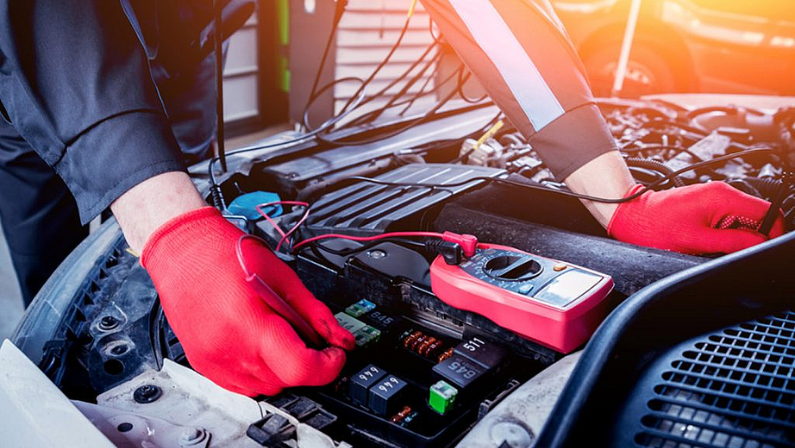
Electric vehicles (EVs) are quickly becoming a popular choice for Canadian drivers who want a greener, more efficient way to get around.
At CarHub North York Chrysler, we’re excited to bring that future closer to home with models like the all-electric FIAT 500e, a stylish, eco-friendly ride that proves driving electric can be both fun and practical.
But while EVs are often seen as “low-maintenance,” the truth is they still need the right kind of care to stay safe, reliable, and running at their best.
Owning an EV is more than just about plugging in and driving off; it also comes with a unique set of electric vehicle servicing needs that differ from traditional gas-powered vehicles.
In this blog post, we'll explore the essential electric vehicle maintenance that every EV owner should know, providing you with the peace of mind that comes with being prepared.
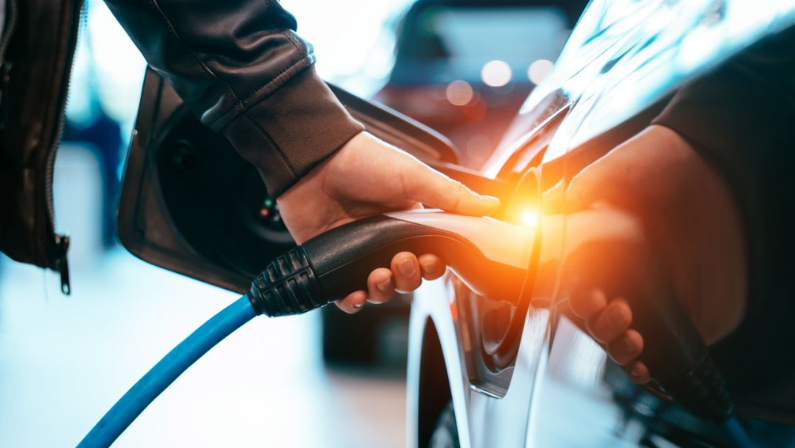
Understanding Electrical Vehicle Maintenance Basics
EV maintenance is all about taking routine steps to keep your vehicle in top shape, prevent unexpected repairs, and ensure your safety on the road. While the goal is the same as with traditional cars, the process looks a little different.
Because EVs don’t rely on components like oil filters, spark plugs, or exhaust systems, they have fewer moving parts and generally require less upkeep. That means fewer trips to the shop, but it doesn’t mean maintenance disappears altogether.
Like gas-powered vehicles, EVs still need routine care such as checking tire pressure, rotating tires, and inspecting for wear and tear. Well-balanced, properly inflated tires can even improve your EV’s energy efficiency, helping you go further between charges.
Filters, fluids, and other systems also need periodic checks to ensure everything is working smoothly. One unique aspect of EV maintenance is keeping your software and firmware up to date, which not only improves performance but also unlocks the latest features.
In short, EV servicing is simpler, but it’s still an essential part of protecting your investment and enjoying a safe, efficient drive.
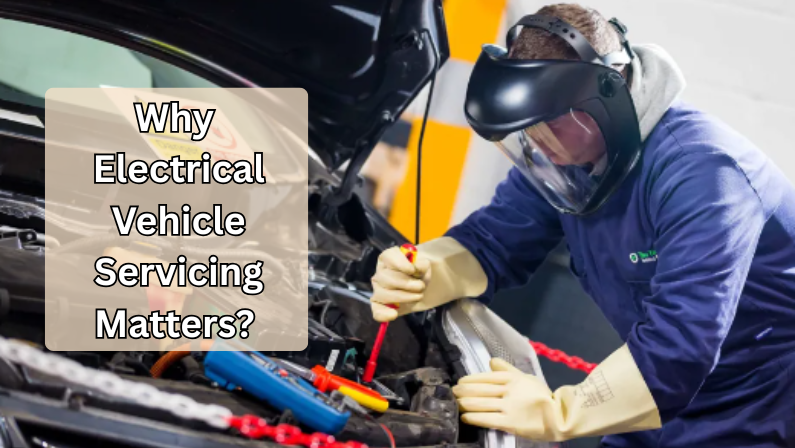
Why Electrical Vehicle Servicing Matters?
While electric cars have a reputation for being low-maintenance, overlooking their specific service needs can lead to a decline in performance, a decrease in safety, and potentially expensive repairs down the road.
Here’s why prioritizing electric vehicle servicing is so crucial:
1. Optimal Performance
An EV's performance is driven by a complex interplay of the battery, motor, and intricate electronic systems. Regular servicing ensures all these components are functioning in perfect harmony, helping your car maintain its smooth acceleration, optimal range, and overall efficiency, keeping it running like new.
2. Protecting Your Investment
Your EV represents a smart, forward-thinking investment. Keeping up with a consistent service schedule helps maintain the health of key components, especially the high-voltage battery.
This not only prevents major issues but also helps preserve the vehicle's long-term value and ensures it remains an asset for years to come.
3. Safety First
While the maintenance list for an EV is different from that of a gas-powered car, safety checks are just as important. Regular servicing allows our trained technicians to inspect critical safety systems like the brakes, tires, and steering components.
Catching potential issues early gives you peace of mind and ensures your vehicle is always ready for whatever the road throws at it.
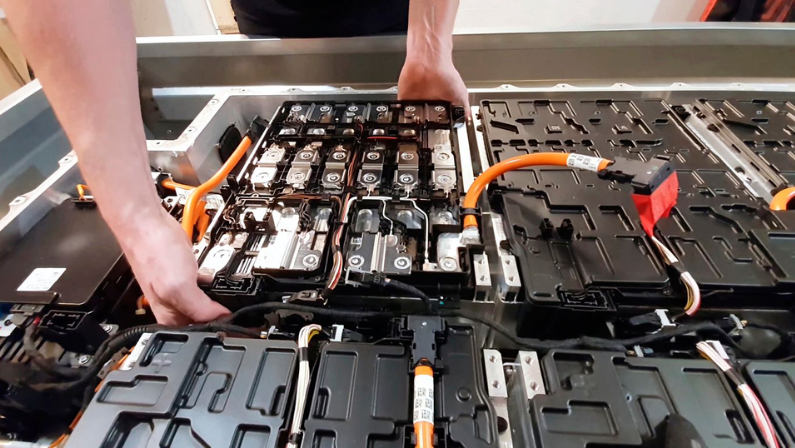
Battery Care and Maintenance
The battery is the heart of an electric vehicle, and while it's designed to last for many years, a little care can go a long way in prolonging its life and maintaining its performance.
Think of it like your phone battery, the way you charge it and use it impacts its long-term health. The good news is that most EV batteries are backed by a long warranty (typically 8 years or 160,000 km), giving you extra peace of mind.
Here are some simple tips to help keep your EV battery in peak condition:
1. Mind Your Charging Habits
For daily driving, the sweet spot for your battery's health is often between 20% and 80% charged. Regularly charging to 100% or letting the battery drain completely can put extra stress on the cells. Most EVs have a feature that allows you to set a charging limit, making it easy to maintain this healthy range.
2. Avoid Extreme Temperatures
Both extreme heat and extreme cold can impact a battery's efficiency and longevity. Many EVs have a built-in thermal management system to regulate battery temperature, but you can help by parking in a garage or a shaded area whenever possible, especially on very hot or cold days.
3. Go Easy on Fast Charging
While DC fast chargers are incredibly convenient for road trips, relying on them too frequently can generate extra heat and accelerate battery degradation over time. For your everyday charging needs, using a slower Level 1 or Level 2 charger is gentler on the battery and helps it last longer.
4. Don't Skip Your Check-ups
Just like any other part of your vehicle, the battery system benefits from professional inspections. During your regular service appointments, our certified technicians can check the battery's health, inspect the cooling system (if applicable), and ensure all related components are working as they should.
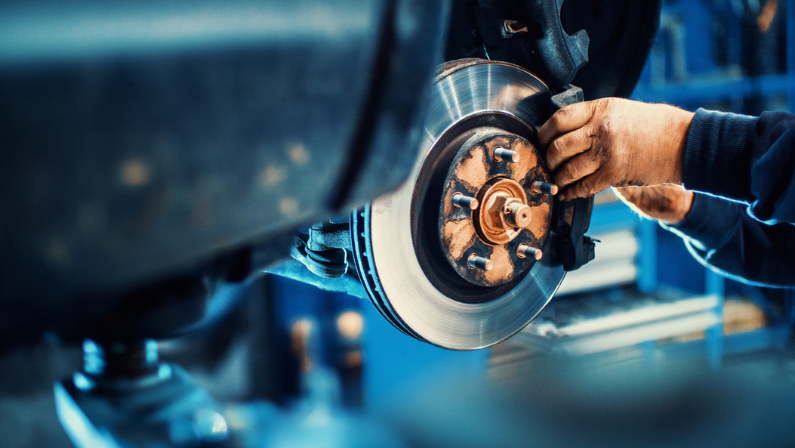
Brake System Servicing
One of the most significant differences between an EV and a traditional gas-powered car is how the brakes work. Electric vehicles use a clever technology called regenerative braking, which helps to slow the car down.
This process works by reversing the electric motor to turn kinetic energy (the energy of motion) into electrical energy, which is then sent back to the battery to be stored.
Because regenerative braking does most of the work, the conventional friction brakes (the pads and rotors) are used far less often than in a regular car. This means your brake pads will likely last much, much longer, saving you money and a trip to the service center.
However, "less use" doesn't mean "no use." Regular brake inspections are still vital for two main reasons:
1. Preventing Rust and Corrosion
Since the friction brakes are not used as often, they can become susceptible to rust and corrosion, especially in a climate with harsh winters like ours. This can affect their performance when you need them for a sudden, emergency stop.
2. Ensuring Safety
A professional inspection ensures that all parts of your braking system (including the pads, rotors, and brake fluid) are in perfect working order. This is a critical safety check that gives you the confidence to drive with peace of mind, knowing your car can stop effectively when it matters most.
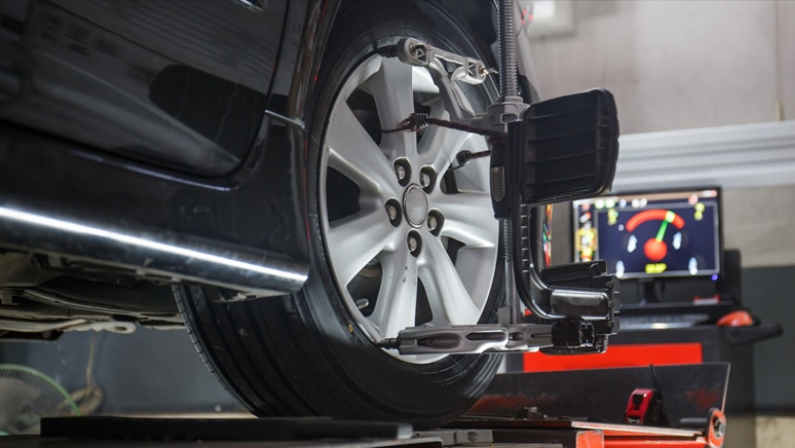
Tire Rotation and Alignment
While it may seem like a simple part of vehicle maintenance, routine tire care is particularly important for electric vehicles. Due to the heavy weight of the large battery pack and the instant, powerful torque of the electric motor, tires on an EV can wear out much faster than on a traditional gas-powered car.
To ensure even wear and extend the life of your tires, you need to follow a consistent schedule of rotation and alignment.
1. Tire Rotation
We recommend rotating your tires every 10,000 to 13,000 km, or roughly every six months. This helps distribute the wear evenly across all four tires, maximizing their lifespan and ensuring consistent handling.
2. Wheel Alignment
Over time, hitting potholes or even everyday driving can cause your wheels to fall out of alignment. Proper alignment is key to safe and efficient driving, preventing uneven tire wear and ensuring your vehicle tracks straight.
In addition to professional rotation and alignment, we highly recommend that you make a habit of checking your tire pressure at least once a month and always before a long road trip.
Correct tire pressure is essential for your vehicle's safety, performance, and range. Regular, professional tire care is a simple way to protect your investment and ensure a smooth, confident ride.
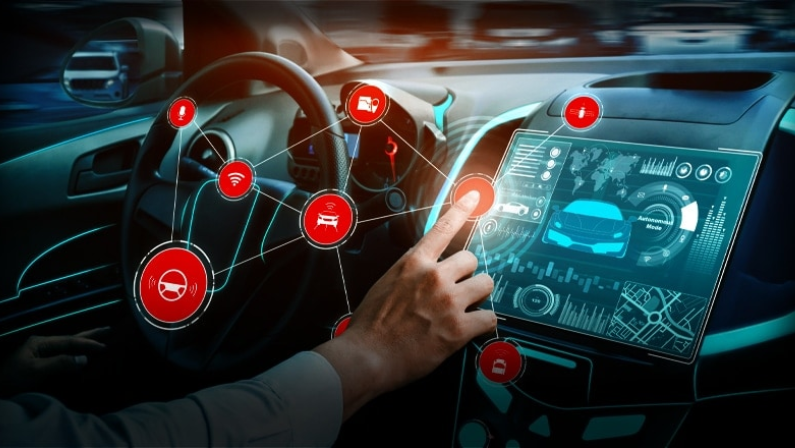
Cooling and Thermal Management Systems
While gas cars need cooling systems to prevent their engines from overheating, EVs have a similar need to protect their batteries and electronic components. The battery, in particular, operates best within a specific temperature range.
A sophisticated thermal management system uses a liquid coolant to keep the battery from getting too hot during charging and operation, or too cold in freezing weather. This is crucial for maintaining the battery's health, efficiency, and longevity.
During a routine service, a technician will thoroughly inspect this cooling system. This includes checking the coolant levels and the condition of hoses and pumps to ensure everything is working correctly.
It's also a good idea for you to check your coolant levels yourself at least twice a year, once before the hot summer months and again before the cold winter season hits.
Ensuring these levels are topped up is a simple but effective way to keep your vehicle's most vital components operating smoothly and efficiently between service appointments.
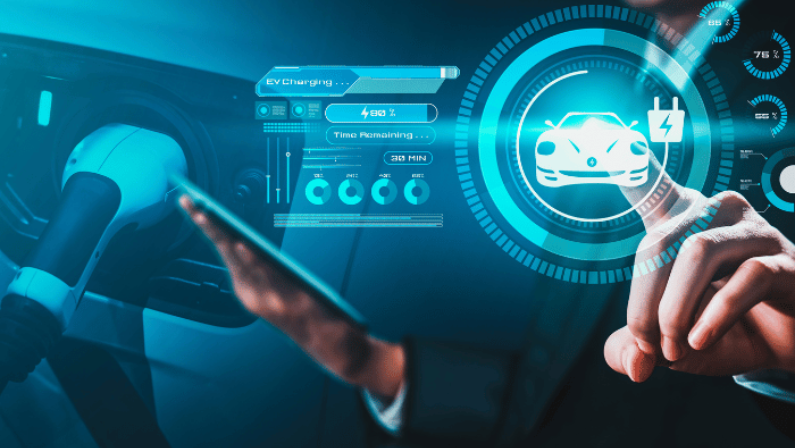
Software Updates and Diagnostics
One of the most modern and unique aspects of EV maintenance is the role of software. Unlike gas-powered vehicles, which are primarily mechanical, EVs are essentially computers on wheels. This means that keeping your car's software updated is just as important as rotating its tires.
Fortunately, most modern EVs are equipped with "Over-the-Air" (OTA) update capabilities. Just like your smartphone or tablet, your car can receive new software directly from the manufacturer via a Wi-Fi or cellular connection.
These updates are a crucial part of the ownership experience because they can:
1. Improve Performance and Range
Manufacturers frequently release software updates that fine-tune battery management, optimize power delivery, and enhance the car's efficiency. A simple update can sometimes increase your driving range or even improve acceleration.
2. Enhance Features and Functionality
OTA updates often introduce new features, improve the infotainment system, or refine existing driver-assistance technologies. This ensures your vehicle's technology stays current and continues to feel fresh and modern over time.
3. Resolve Issues and Ensure Safety
If a bug or potential safety issue is discovered, the manufacturer can quickly send out a software patch to the entire fleet without the need for a costly and time-consuming recall. This proactive approach keeps your vehicle safe and reliable.
While many updates happen automatically, regular professional diagnostics are still important to ensure that the updates have been installed correctly and that all systems are functioning as they should.
Our trained technicians have the specialized tools to perform these checks, giving you peace of mind that your EV's brain is as healthy as its body.
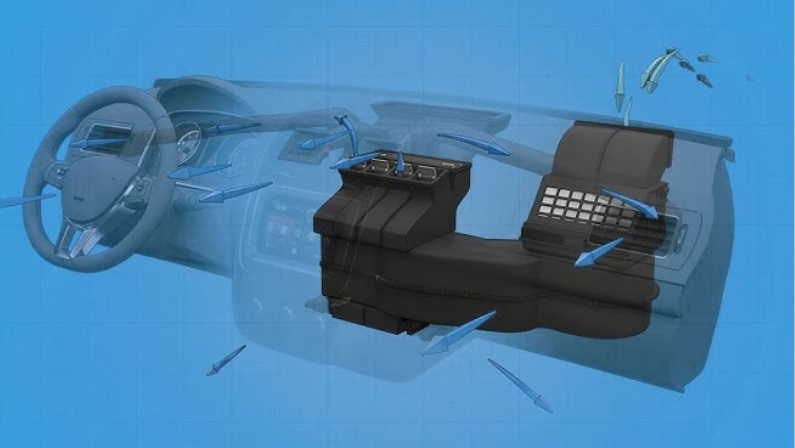
Cabin Air Filters and HVAC Systems
While the EV's engine and battery get most of the attention, the comfort and air quality inside the cabin are just as important. The cabin air filter plays a crucial role in this, as it's responsible for filtering out dust, pollen, and other pollutants from the air that circulates through your vehicle's ventilation system.
Just like in a traditional gas-powered car, this filter can get clogged over time. A dirty or clogged filter can lead to:
- Poor Airflow: You might notice that your heating or air conditioning system isn't blowing as strongly as it used to.
- Bad Odors: A buildup of mold or bacteria in the filter can create a stale or unpleasant smell in the cabin.
- Reduced Air Quality: A dirty filter can't effectively trap allergens and pollutants, which can be a problem for anyone with allergies or respiratory issues.
Replacing the cabin air filter is a simple and relatively inexpensive part of a regular service appointment. It's a quick way to ensure you and your passengers are breathing clean, fresh air, and it helps your HVAC system run more efficiently.
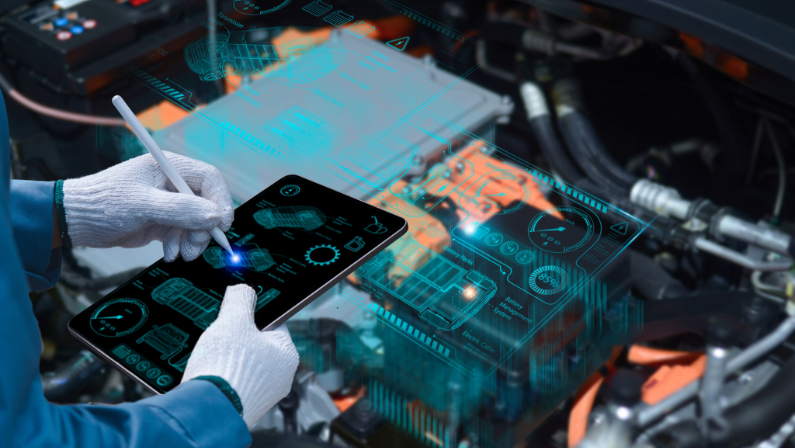
Long-Term Electric Vehicle Health Tips
While the reduced maintenance of an EV is a huge benefit, making smart choices and adopting good habits will help you get the most out of your vehicle for years to come. Thinking of EV ownership as a long-term investment in your future, as well as a more sustainable one, can help you prioritize its care.
Here are some practical tips to prolong your EV’s lifespan and maintain its efficiency:
1. Mind Your Driving Habits
Your driving style has a direct impact on your EV's health and range. Smooth, gentle acceleration and gradual braking are the most efficient ways to drive.
Not only does this reduce wear and tear on your tires and brake components, but it also maximizes the benefits of regenerative braking, helping you conserve energy and extend your range.
2. Prioritize Battery Care
The battery is the most valuable part of your EV, and how you charge it matters. For everyday use, experts recommend keeping your battery charge level between 20% and 80%.
Regularly charging to 100% or letting the battery drop to near empty can put unnecessary stress on the cells over time. Only charge to a full 100% when you need the full range for a long road trip.
3. Be Strategic with Fast Charging
While DC fast chargers are incredibly convenient, especially on long journeys, their high-power output can generate extra heat and, with frequent use, lead to accelerated battery degradation. For daily charging, rely on slower Level 1 or Level 2 chargers, which are much gentler on the battery and just as effective for your regular needs.
4. Don't Skimp on Regular Maintenance
Remember, while simpler, your EV still needs professional attention. Following the manufacturer’s recommended service schedule ensures all systems (from the cooling system to the tires and software) are properly inspected and cared for.
This proactive approach is the best way to catch minor issues before they become major, costly repairs.

How Often Does My Electric Car Need Servicing?
The great news about owning an electric vehicle is that your trips to the service department will be much less frequent. Without an engine that requires oil changes, air filters, or spark plugs, the service schedule for an EV is significantly simpler and more spread out.
While exact service intervals can vary based on the manufacturer, the specific EV model, and your personal driving habits, a general rule of thumb is to have your electric vehicle serviced every two years or roughly every 30,000 to 40,000 kilometers, whichever comes first.
This service won't be as extensive as a traditional gas car's check-up, but it's crucial for long-term vehicle health. These regular appointments are an opportunity for our technicians to perform essential checks on your:
- Tire health and rotation
- Brake system condition
- Cooling system fluids and components
- Cabin air filter
- 12-volt battery
Even with a lighter maintenance schedule, these regular check-ups are key to spotting potential issues early, ensuring your safety, and protecting your investment.
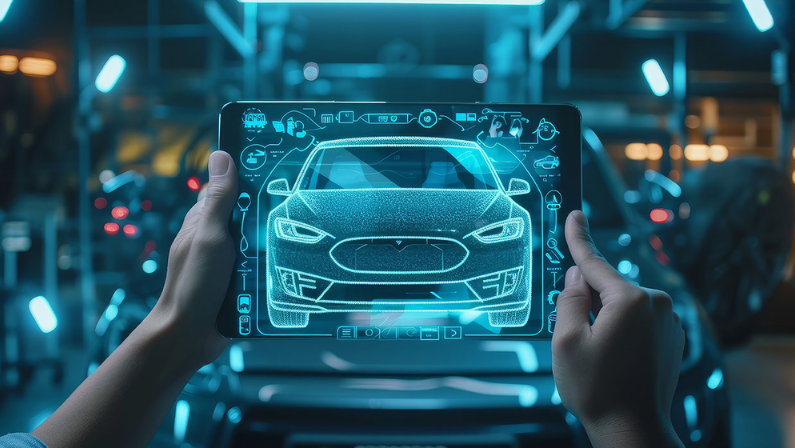
Ready For Your Electric Vehicle's Next Check-up?
Owning an electric vehicle like the FIAT 500e comes with exciting benefits, but it also means staying on top of unique maintenance needs. From battery care and software updates to tire rotations and system inspections, regular servicing helps keep your EV safe, efficient, and performing at its best.
By following these tips and scheduling routine check-ups, you can enjoy worry-free driving while protecting your investment.
At CarHub North York Chrysler, our team is ready to help with all your EV maintenance needs, including EV battery replacement service and more. Learn how we can keep your vehicles running smoothly with our Car Maintenance Services.
